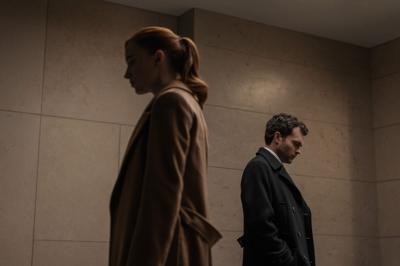Once upon a time, in an era long before multiplexes were overrun by superheroes and toybox movies, grown-ups would often get a movie intended just for them.
These relationship thrillers, all undergirded with a sense of menace, didn’t require 3D glasses or expensive visual effects.
Rather, they were built on the drama, insecurities and danger — or at least the perceived danger — that comes with modern relationships.
Specifically, they were built around one core concept: How well do you know the person sleeping next to you? And exactly how insane are they beneath it all?
Think “Fatal Attraction,” “Indecent Proposal,” “Sleeping with the Enemy” and “Body Double.” The list goes on.
Smart, suspenseful, passé
But as is so often the case when Hollywood — and its audiences — become fixated on a specific genre, the adult thriller soon became a parody of itself, with stupider and stupider movies prioritizing gratuitousness and shock over smarts and suspense.
Now, such movies have become the exception rather than the rule.
Enter first-time director Chloe Domont, who is seeking to remedy that with “Fair Play,” a Wall Street workplace drama that is slick, stylish and decidedly contemporary — but which is also colder than its steel-and-chrome aesthetic.
That goes for its main characters, it goes for the chemistry between them, and it goes for Domont’s swing-and-miss attempts to live up to the “erotic” part of what is being billed as an erotic thriller.
Make no mistake: “Fair Play” is an attractively shot film. In addition, its intriguing central theme — the fragility of the modern male ego — is one well worth exploring.
Unfortunately, that spark of an idea never catches. What should become a raging fire of betrayal and deceit never generates more candlepower than a plug-in air freshener.
Wall Street romance
Central to the whole snoozy affair are Emily and Luke, two young Wall Street analysts who are passionately in love with one another. She’s played by Phoebe Dynevor, whom many might remember as the lead in the deservedly acclaimed Netflix series “Bridgerton.” He’s played by Alden Ehrenreich, who was Han Solo in the stand-alone “Star Wars” one-off “Solo.”
Call me a nerd for pointing it out, but: Yes, the guy who played Han Solo is now playing someone named Luke.
Anyway, as we learn early in the film, Emily and Luke want nothing more than to spend the rest of their lives together. The problem is that they work for the same firm — and their corporate overlords frown on interoffice diddling.
Of course, secret love can be the most thrilling kind of love, so they decide to try to make it work.
Spoiler alert: It doesn’t.
When Luke is passed over for an expected promotion, he insists to the concerned Emily that he’s OK. Cue the downward spiral, which spins more and more out of control as the movie goes on.
Good acting and not-so-good
Since I first became aware of Ehrenreich in 2013’s locally shot “Beautiful Creatures,” I’ve been convinced that his innate charm coupled with his sense of ease on-camera will take him far. His work in “Fair Play” serves as proof.
Then there’s Dynevor, who delivers a credible performance — but who simply can’t match Ehrenreich’s charisma. Her Emily is no distressed damsel in need of rescuing, and that’s important to the film’s female-empowering theme. Unfortunately, she’s also stiff and unsympathetic.
We’re supposed to want to root for her. We’re supposed to care about her. We’re supposed to be invested in her story. Instead, I found myself repeatedly examining the face of my watch.
The grinding, overly suspenseful score doesn’t help. It suggests a revelation every other moment, but — aside from the first-act twist that sets everything in motion — very little of substance happens until the final 10 minutes.
In fact, its best moment is its final line, which will resonate with badass women everywhere.
But, as telegraphed by that inexplicably vanilla title, Domont’s film spends much of the previous two hours vacillating between unembraceable and downright boring.
There was a time in which a filmmaker might have gotten away with it.
But it’s just not 1989 anymore.
Mike Scott can be reached at moviegoermike@gmail.com.

